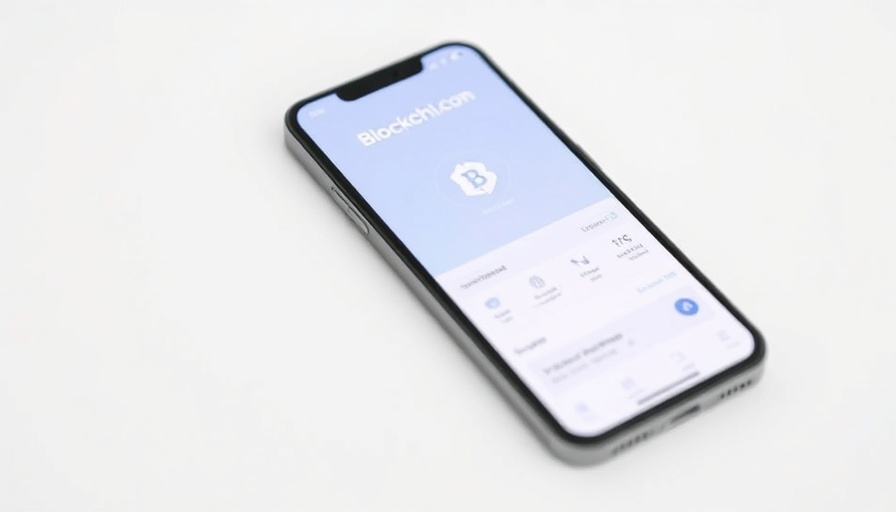
Blockchain.com Sets Sights on Africa: A New Era for Crypto
In an exciting move reflecting the dynamic landscape of cryptocurrency in Africa, Blockchain.com is set to open a physical office in Nigeria and expand its operations across the continent beginning in the second quarter of 2025. This significant development positions Blockchain.com as the first foreign crypto entity to establish a footprint in Nigeria, likely transforming the competitive dynamics of the local market.
Nigeria's Forward-Thinking Regulatory Framework
Nigeria's recent regulatory measures, particularly the Investments and Securities Act established in March 2025, have granted the Securities and Exchange Commission (SEC) authority over digital assets, officially recognizing them as securities. Owenize Odia, the general manager for Blockchain.com’s Africa operations, emphasizes that applying for a crypto exchange license in Nigeria is a top priority, showcasing the company’s commitment to aligning with local regulations.
Growing Presence of Global Players
As Blockchain.com breaks ground, it joins a growing roster of international firms aiming to stake their claims in Africa's burgeoning crypto landscape. Other global giants like Coinbase are also advancing their initiatives on the continent. This influx of foreign investment and innovation is anticipated to accelerate the development of consistent and comprehensive regulatory frameworks across various African nations, including Ghana and Kenya, both of which are currently drafting their own regulations.
The Economic Promise of African Cryptocurrencies
The African cryptocurrency market is poised for substantial growth, with projections estimating over $2.9 billion in revenue by 2025. This economic potential is attracting attention not just from tech firms but also from investors looking to tap into Africa’s next wave of technological disruption. With Blockchain.com establishing local operations, Nigerian users may soon have increased access to digital asset services, which could empower more people to participate in the global crypto economy.
Implications for Startups and Innovators in Africa
For tech entrepreneurs and startups in Africa, the expansion of Blockchain.com represents more than just the arrival of a new player; it signifies a paradigm shift in the digital landscape. As local and international entities collaborate, the innovation ecosystem will likely thrive, unlocking new opportunities, nurturing startups, and fostering the digital transformation of industries across the region.
What This Means for the Future of Work in Africa
The integration of blockchain technology into the fabric of African business and finance is not merely about transactions; it is fundamentally reshaping the future of work in the region. As firms like Blockchain.com push for digitization, job opportunities in fields such as blockchain development, compliance, and digital finance will likely surge, equipping the next generation with the skills needed for tomorrow’s workforce.
Conclusion: Join the Conversation
As Blockchain.com sets its sights on Nigeria and beyond, the implications for the African tech landscape are profound. Stakeholders in the fintech ecosystem must remain informed and engaged as this transformational journey unfolds. Embrace the digital revolution and explore ways to harness the potential of blockchain and cryptocurrencies in your ventures!
 Add Row
Add Row  Add
Add 


Write A Comment